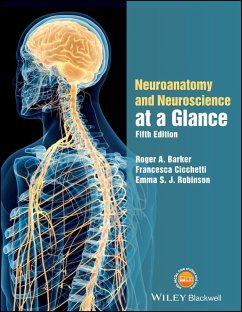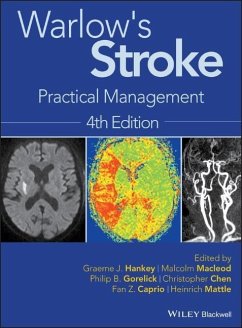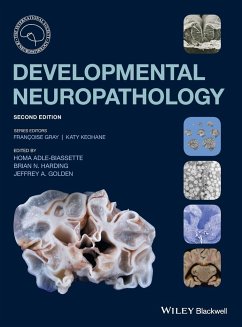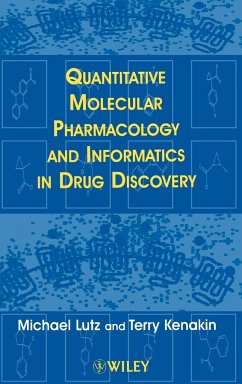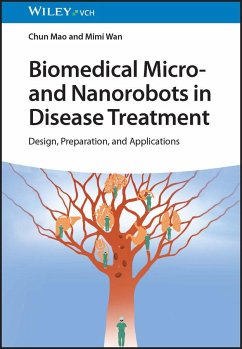
Cancer as a Metabolic Disease
On the Origin, Management, and Prevention of Cancer

PAYBACK Punkte
57 °P sammeln!
A groundbreaking new approach to understanding, preventing, and treating cancerSupported by evidence from more than 1,000 scientific and clinical studies, this groundbreaking book demonstrates that cancer is a metabolic disease and, more importantly, that it can be more effectively managed and prevented when it is recognized as such. Moreover, the book provides detailed evidence that the traditional view of cancer as a genetic disease has been largely responsible for the failure to develop effective therapies and preventive strategies.Cancer as a Metabolic Disease reevaluates the origins of ca...
A groundbreaking new approach to understanding, preventing, and treating cancer
Supported by evidence from more than 1,000 scientific and clinical studies, this groundbreaking book demonstrates that cancer is a metabolic disease and, more importantly, that it can be more effectively managed and prevented when it is recognized as such. Moreover, the book provides detailed evidence that the traditional view of cancer as a genetic disease has been largely responsible for the failure to develop effective therapies and preventive strategies.
Cancer as a Metabolic Disease reevaluates the origins of cancer based on the latest research findings as well as several decades of studies exploring the defects in tumor cell energy metabolism. Author Thomas Seyfried is a biochemical geneticist who has been investigating the lipid biochemistry of cancer for thirty years. In this book, he carefully establishes why approaching cancer as a metabolic disease leads to better understanding and management of all aspects of the disease, including inflammation, vascularization, cell death, drug resistance, and genomic instability. In addition, the book explores:
Origin of metastasis
New treatment strategies that target tumor cell energy metabolism, including the ketogenic diet
More effective prevention strategies in light of the metabolic origin of cancer
Case studies and perspectives from the point of view of physicians, patients, and caregivers
Throughout the book, tables, figures, and graphs summarize key information and clarify complex concepts. In addition, the renowned cancer biochemist Peter Pedersen from Johns Hopkins Medical School also provides a historical perspective on the importance of the information presented in his foreward to the book.
Cancer as a Metabolic Disease is essential reading for all cancer researchers and clinicians as well as public health professionals. By treating cancer as a metabolic disease, the book sets readers on a new, more promising path to understanding the origins of cancer and developing new, more effective strategies to treat and prevent it.
Supported by evidence from more than 1,000 scientific and clinical studies, this groundbreaking book demonstrates that cancer is a metabolic disease and, more importantly, that it can be more effectively managed and prevented when it is recognized as such. Moreover, the book provides detailed evidence that the traditional view of cancer as a genetic disease has been largely responsible for the failure to develop effective therapies and preventive strategies.
Cancer as a Metabolic Disease reevaluates the origins of cancer based on the latest research findings as well as several decades of studies exploring the defects in tumor cell energy metabolism. Author Thomas Seyfried is a biochemical geneticist who has been investigating the lipid biochemistry of cancer for thirty years. In this book, he carefully establishes why approaching cancer as a metabolic disease leads to better understanding and management of all aspects of the disease, including inflammation, vascularization, cell death, drug resistance, and genomic instability. In addition, the book explores:
Origin of metastasis
New treatment strategies that target tumor cell energy metabolism, including the ketogenic diet
More effective prevention strategies in light of the metabolic origin of cancer
Case studies and perspectives from the point of view of physicians, patients, and caregivers
Throughout the book, tables, figures, and graphs summarize key information and clarify complex concepts. In addition, the renowned cancer biochemist Peter Pedersen from Johns Hopkins Medical School also provides a historical perspective on the importance of the information presented in his foreward to the book.
Cancer as a Metabolic Disease is essential reading for all cancer researchers and clinicians as well as public health professionals. By treating cancer as a metabolic disease, the book sets readers on a new, more promising path to understanding the origins of cancer and developing new, more effective strategies to treat and prevent it.









